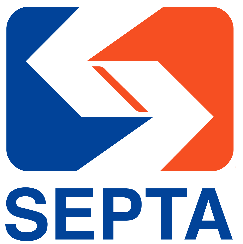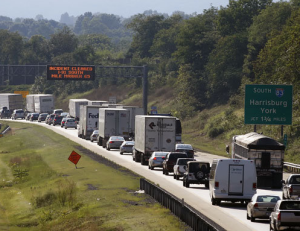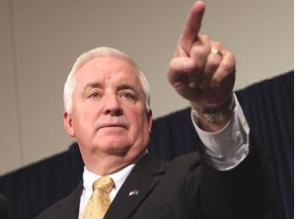PA Transit agencies may get more funding than Gov. Corbett’s budget plan
Philadelphia, Inquirer: Paul Nussbaum, Staff Writer: SEPTA and other transit agencies may get more funding than Gov. Corbett called for in his budget plan, state Transportation Secretary Barry Schoch said Friday.
Corbett’s plan, unveiled this week, would raise transit funding by $40 million in the first year while boosting highway and bridge funding by $470 million. By the fifth year, transit funding would be increased by $250 million, and highway funding by about $1.5 billion.
SEPTA faces a $38 million budget shortfall next year, even with a planned fare increase.
“We need to make capital investments in SEPTA, I know that,” Schoch told reporters Friday as he outlined details of Corbett’s plan. He said there was “room for discussion” with lawmakers about boosting transit funding.
Rob Wonderling, president of the Greater Philadelphia Chamber of Commerce, said Friday, “We also believe there should be a higher level of investment for transit, and we will be communicating that to legislators.”
Wonderling, a former state senator, said he was “really optimistic” that SEPTA would get more than proposed by Corbett.
 Schoch praised SEPTA as “well run and well managed,” and he said administration efforts to compel consolidations of transit agencies were not aimed at SEPTA, which is by far the largest in Pennsylvania.
Schoch praised SEPTA as “well run and well managed,” and he said administration efforts to compel consolidations of transit agencies were not aimed at SEPTA, which is by far the largest in Pennsylvania.
Fuel taxes are not allowed to be used for transit, but several other transportation-related fees could generate as much as $130 million for transit, Schoch said.
Those include fees for auto inspections, certificates of title, photo ID cards, and vehicle liens.
Corbett’s plan to increase transportation funding by $1.8 billion a year within five years relies heavily on a proposed increase in revenue from state gasoline taxes.
Corbett wants to lift a cap on the wholesale “oil company franchise tax,” even as he would reduce the flat tax on retail gasoline sales by two cents a ga
llon.
Taken together, the changes would boost Pennsylvania’s gas tax from the current 32 cents per gallon to 58 cents a gallon by the end of five years, if the full wholesale increase were passed on to motorists at the pump.
Schoch said some of the increase might be absorbed by gas dealers. The cost for an average motorist would be about $2 a week, if the wholesale increases were passed along, he said. He said that was a small price to pay to repair the state’s crumbling highways and deficient bridges.
Without more funding for transportation, he said, 12,500 construction and other highway-related jobs would be lost, and commerce in the state would suffer.

Several major highway projects in the five-county Philadelphia region would get a boost from higher transportation funding, PennDot officials said,including:
The Route 422 bridge over the Schuylkill at Betzwood and the Route 23 bridge over Route 422 in West Norriton and Upper Merion, for a total of $149 million.
Widening of eight miles of Route 322 from Route 1 to I-95 in Delaware County, for $216 million.
Replacing seven bridges over the Vine Street Expressway (I-676) in Philadelphia, for $110 million.
Category: General Update, Management, News, Transit News











